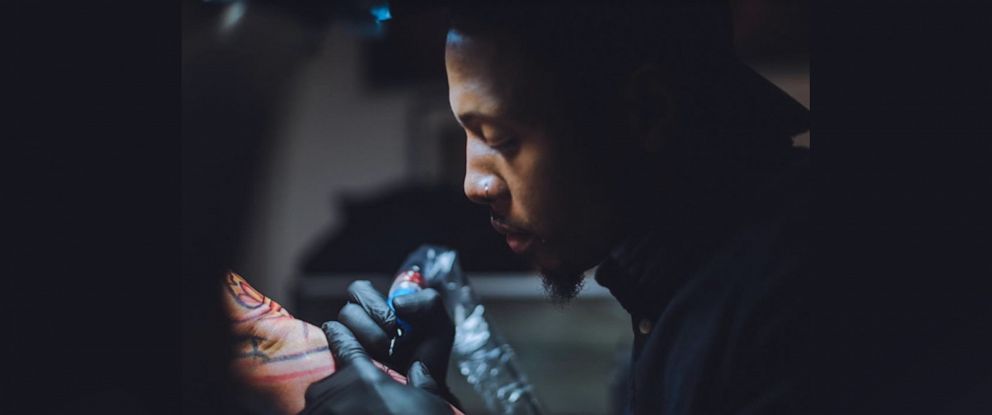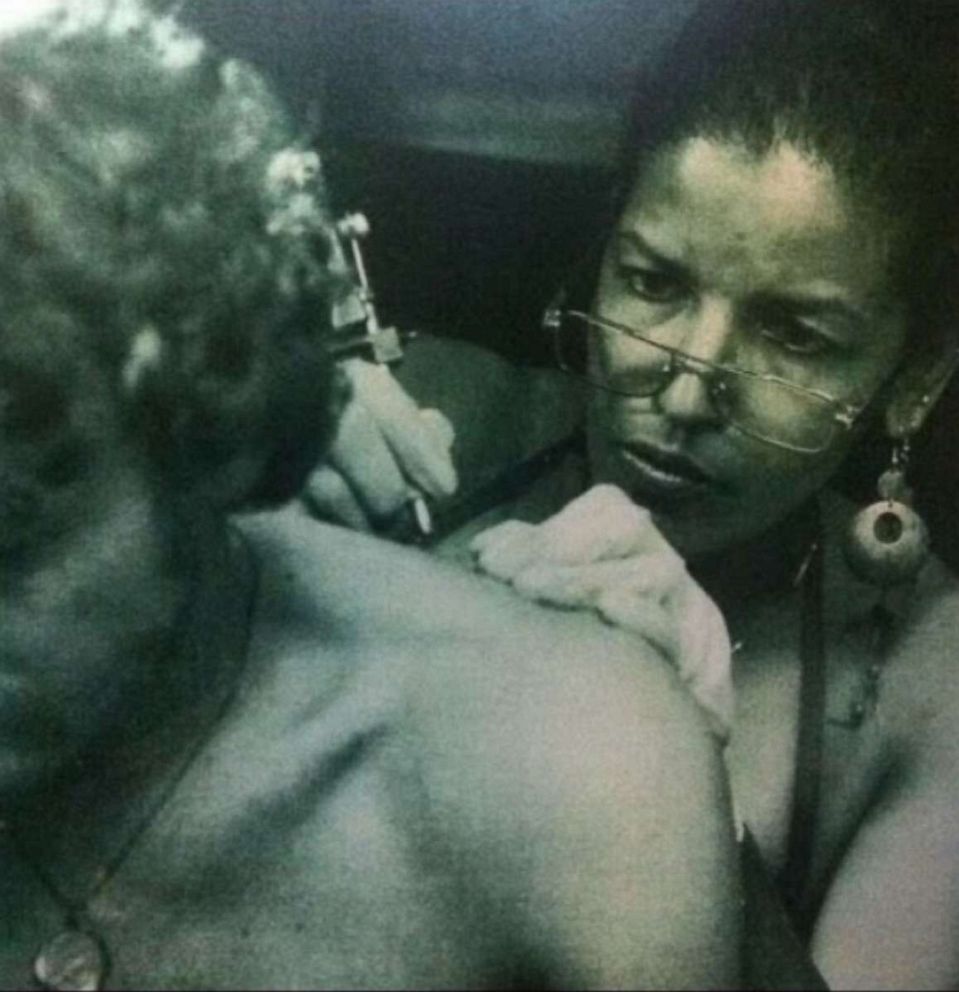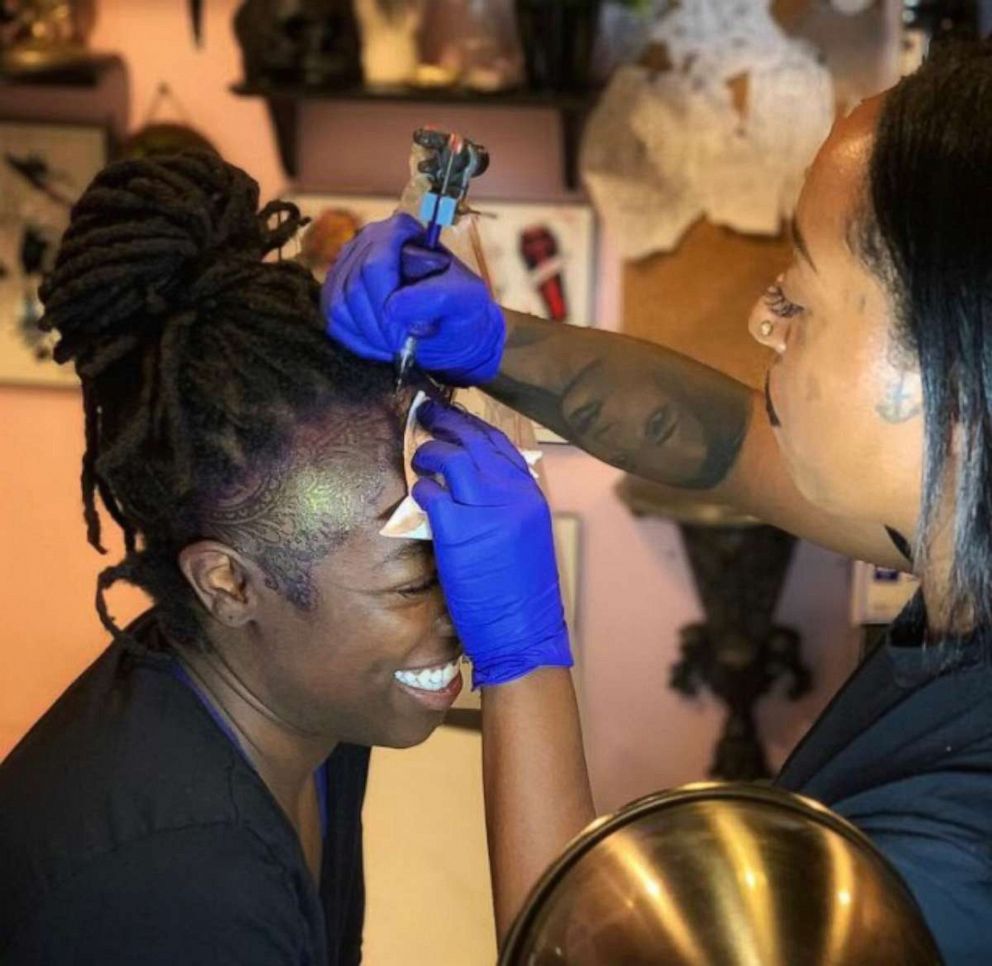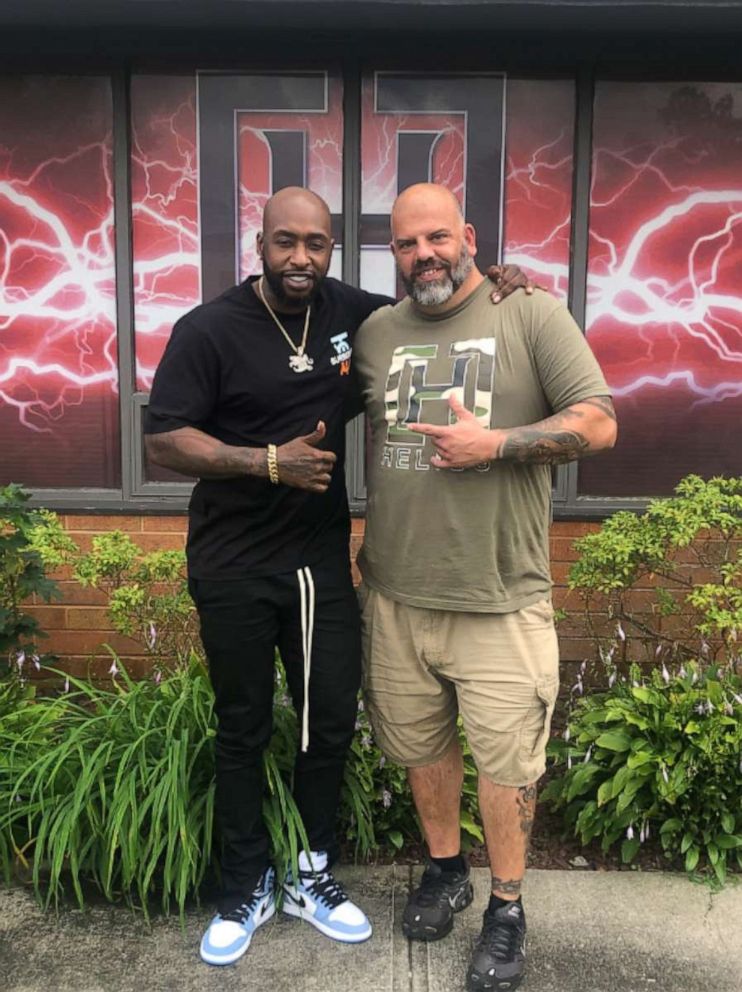Black tattoo artists push for diversity in the white-dominated industry
Discriminatory hiring practices is one challenge Black tattoo artists face.
Although tattooing has been around for centuries, the practice was mainly underground before becoming recognized as legitimate art in modern history.
Despite being a fairly mainstream industry now, discriminatory hiring practices and racial stigmas are among the challenges that Black tattoo artists say they face in the white-dominated field of tattoo artistry.
Even tattoo artists of color in New York City -- considered the birthplace of modern tattooing following a nearly four-decade ban, according to The New York Historical Society, say the field needs more diversity.
Richard Parker, owner of the tattoo studio Art Made Rich in Brooklyn, New York, and of the brand, Think Before You Ink, said that being an artist brings "a struggle of its own" -- but being a Black artist only adds another layer of obstacles.
"As a whole, we have been left far behind in an industry that has actually derived from our tribal heritage," Parker told ABC News.
The lack of diversity can also affect customers due to many professionals' inexperience with tattooing on Black and brown skin, something that "has left many darker-skinned clients struggling to find someone who can actually provide them with quality work," Parker said.

For Black women working in the field, inclusion issues are deeper, as the industry is not only white-dominated, but it's also inundated by men.
Jacci Gresham, who is considered America's first Black female tattoo artist, is still working and living her dream at the age of 75. She has been running her business in New Orleans for over 50 years after first opening her own tattoo shop in the 1970s, making it one of the state's oldest tattoo parlors.
"I had issues because of color… I had issues because of being a woman and just being trusted … they just weren't used to women being in that field. Let alone Black women," Gresham told ABC News.

Gresham is a native of Flint, Michigan, who grew up during an era when tattoos were not widely accepted. She said she used her artistic background to study architecture before pursuing her true passion of tattooing.
Today, she is living in Mississippi and regularly travels to her New Orleans studio, Aart Accent Tattoos & Body Piercings, after her home flooded during Hurricane Katrina in 2005. She said that although her business temporarily lost power and the roof was destroyed, she is grateful her shop was still left standing despite the deadly hurricane.
Gresham, who doesn't have any biological children, said she hopes that among her biggest impact is being a trailblazer within the industry.
"My kids are the people I've trained to tattoo," she said.
While there has been progress in recent years for Black women tattoo artists, Kandace Layne, owner of Magic Mirror tattoo studio in Atlanta, said the industry still has a long way to go to become more inclusive.
"It is hard for anyone to get an apprenticeship, but it's even harder for Black women to find a place that will teach them and to find a place that will treat them with respect," Layne told ABC News.

The 27-year-old said that one of her primary drives in taking the leap to open her own shop was after her struggle with finding opportunities elsewhere. Now, Layne runs a shop that prioritizes service for women/femmes, LGBTQA+; and Black, Indigenous and people of color
"I felt that creating my own space was the best way to get my needs met," Layne said, adding that she worked at some locations that made her question her worth.
But there are those in the industry who are working to make the tattoo business more inclusive. Helios Tattoo Supply in New York is a manufacturing and supply company providing artists with items such as needles, machines, ink and after-care products.

Craig Petralia, Helios' founder and CEO who is from Long Island, New York, has been working in the industry for over two decades. The father of two said he aims to provide a family atmosphere to support several artists, many of whom are people of color, and also the freedom to create without limitations.
"We are a group of people coming together to build something bigger than ourselves … our purpose is to give artists the tools to create their best artwork," Petralia told ABC News.
Petralia's company sponsors Ceaser Emanuel, a tattoo artist of color, and star of "Black Ink Crew" -- a reality TV show which began by following New York-based tattoo artists and later expanded to other cities.
Parker has collaborated with Petralia for over five years. Petralia's Helios is also a sponsor of Parker's tattoo studio. Both say they are committed to diversifying the tattoo business and also bringing more art to more people. For instance, Parker, who is the father of a 5-year-old boy, says he has worked with several students across New York City over the last decade to create artwork in schools and help inspire students' creativity.

From seeing his son create illustrations to subjecting him to the atmosphere of his tattoo shop, Parker said being a positive influence is one of his most important jobs.
"I'm just extremely happy and proud that I get to expose him to a life that's more out of the box so he can create his own canvas," Parker said.
Parker -- who also is a former cast member of "Ink Master," a tattoo artist competition TV show -- said becoming an entrepreneur was the best way to open more doors.
He says he is also trying to implement change by joining other artists involved in "The Black Tattoo Experience," which is a collective of artists creating opportunities and a space for minorities to build within the industry.
"More of us are coming together and trading secrets as a community to build each other up [and] us sticking together is what will further diversify the playing field," Parker said.



